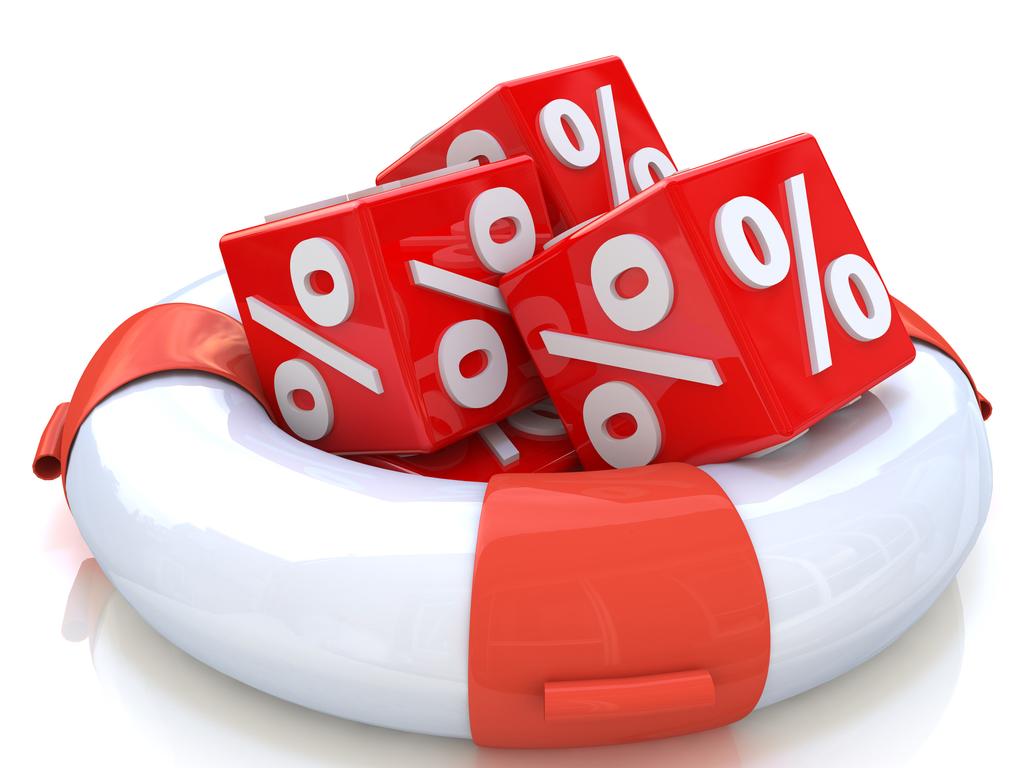Companies facing debt refinancing hit hardest

Moreover, bear markets are also excellent teachers, at least for those investors who are ready to learn invaluable lessons. For years now we have all been reading funds managers predicting the next economic recession would herald the end of “growth stocks” and the release the money moment for largely ignored value stocks.
Guess what just happened in the past few weeks? Value stocks have been absolutely trashed. Sure, many will come good and present excellent buying opportunities, but probably not just yet, except for that special kind of investor with an iron stomach who can confidently focus on the future, and ignore wild sharemarket gyrations.
Instead, many of the stocks that have relatively held up well in this global market meltdown are the ones most hated by your typical fund manager: “expensively” priced stalwarts such as CSL, Xero and Woolworths.
There is no secret ingredient waiting to be unveiled here: these stocks represent less risk than your average bank, oil and gas producer or mining services provider. To be fair, many of the previously popular High PE names have not been spared either since the reversal began. If you really want to check up on true sharemarket carnage, try travel agents, airlines and tourism operators.
Or look up Ardent Leisure. Clearly, investors have taken the view that the owner of Dreamworld on the Gold Coast and Main Event in the US is not going to survive in its present constitution.
Want more horror stories? Check out Seven West Media or Regis Healthcare. Or simply look up bitcoin in US dollars.
Having said so, owning quality sustainable growers with less operational risks only gets you so far when the Big Bad Bear is gripping its claws around global risk assets. Some days everything goes out with the bathwater. Other days the market might just target those relative outperformers because that’s the only place where there are still some trading profits left.
The one major change in a bear market is that cash instantaneously becomes an invaluable asset. It does not earn anything tangible in terms of an actual return, but cash helps keeping both short-term losses and the nerves in check.
Take a step back from the day-to-day share price movements and news flow — what we are experiencing is truly a watershed moment. About 12 years ago, I sat down one afternoon and wrote we are all experiencing a seminal moment in modern history.
As things unfolded, that was an accurate description. We’ve seen studies and books since, and a few Hollywood movies and documentaries. Everybody now knows the “GFC”.
What I did not foresee at that time is that Bear Stearns, Centro Properties, Lehman Brothers, Allco and CFDs would merely turn into the warm up act of a much bigger event 12 years later.
Yet here we are, it’s 2020. We’ve had three mini-bear markets every two to four years, but also steadily growing debt (just about everywhere), record low interest rates, government bonds in negative yield territory, businesses that borrow money to buy in their own stock, a sharply widening gap between the haves and have nots in society, and a prolonged era of fragile and slow global growth. Not to mention the demographic changes, the technological disruption and the passive investment instruments.
The bottom line is that if we combine all these factors together, we end up with an increasingly fragile system. One that continuously runs the risk of falling apart. Which is why central banks have intervened so many times over the decade past.
We cannot genuinely blame them. There seemed no other option available back in 2008. And nor was there a reasonable way out in the 12 years since as the situation required more and more liquidity and ever lower cash rates and bond yields.
One of the wisest observations I came across this week is that many a share price is starting to look like a bargain on a 12 to 18-month horizon, but investors better make sure that companies are able to bridge that gap. It’s another way of saying: when hit with a crisis of this magnitude, you don’t want to own companies with weak balance sheets, not enough cash and too much debt that needs to be paid off or refinanced soon.
Analysts at Macquarie have identified four industrial companies listed on the ASX where refinancing comes up within 12 months and which represents more than 15 per cent of their market capitalisation. It should be no surprise, the shares in these companies have fallen more than many others.
The four companies identified are Wagners Holding, ALE Property Group, Worley and Downer EDI. Outside of the ASX 100 Macquarie has identified three companies whose refinancing over the coming three years exceeds their total market cap. These are Seven West Media, oOh!media, and Southern Cross Media.
Other stocks to highlight are Unibail-Rodamco-Westfield, Link Administration, Lendlease, Incitec Pivot, and Qantas as these companies all have substantial refinancing awaiting in the next three years (each in excess of 35 per cent of their market cap). Take a close look at those numbers.
Rudi Filapek-Vandyck is editor of the investment website www.fnarena.com






Bear markets are brutal. They take no prisoners. Shoot first, then shoot again, and maybe, just maybe, that’s when they might start asking questions. Bear markets punish mistakes instantly and irrevocably.